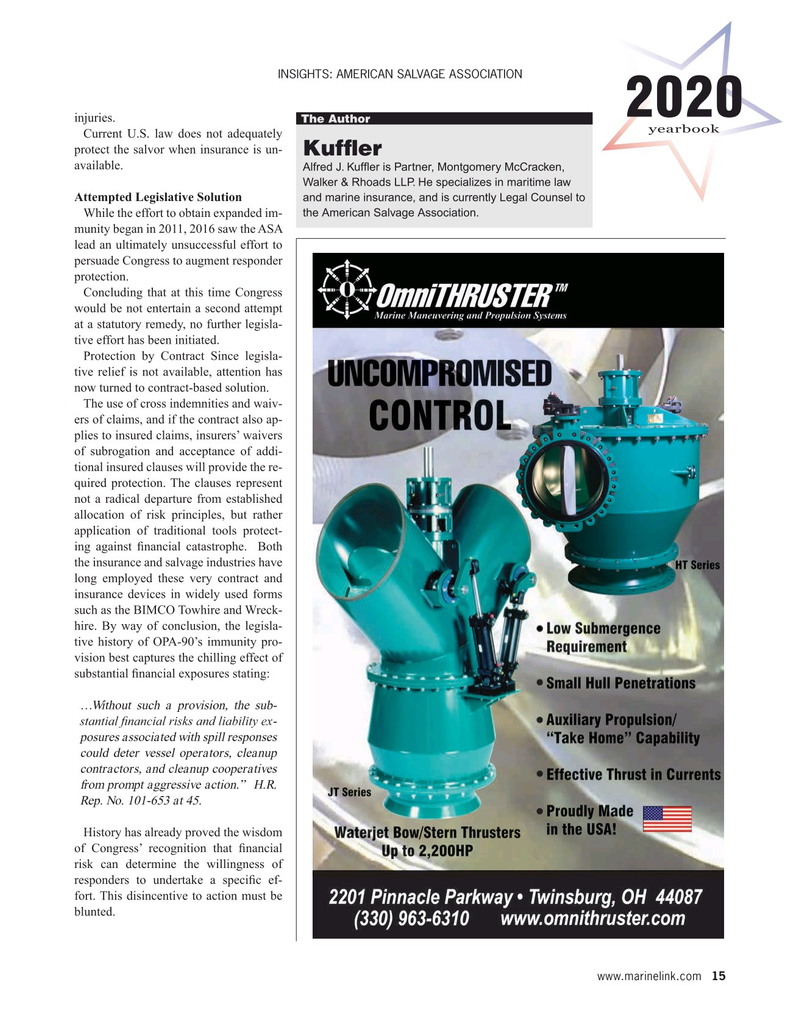
Page 15: of Maritime Reporter Magazine (June 2020)
2020 Yearbook
Read this page in Pdf, Flash or Html5 edition of June 2020 Maritime Reporter Magazine
INSIGHTS: AMERICAN SAlVAGE ASSoCIATIoN 2020 injuries.
The Author yearbook
Current U.S. law does not adequately protect the salvor when insurance is un-
Kuffer available.
Alfred J. Kuffer is Partner, Montgomery McCracken,
Walker & Rhoads LLP. He specializes in maritime law
Attempted Legislative Solution and marine insurance, and is currently Legal Counsel to the American Salvage Association.
While the effort to obtain expanded im- munity began in 2011, 2016 saw the ASA lead an ultimately unsuccessful effort to persuade Congress to augment responder protection.
Concluding that at this time Congress would be not entertain a second attempt at a statutory remedy, no further legisla- tive effort has been initiated.
Protection by Contract Since legisla- tive relief is not available, attention has now turned to contract-based solution.
The use of cross indemnities and waiv- ers of claims, and if the contract also ap- plies to insured claims, insurers’ waivers of subrogation and acceptance of addi- tional insured clauses will provide the re- quired protection. The clauses represent not a radical departure from established allocation of risk principles, but rather application of traditional tools protect- ing against fnancial catastrophe. Both the insurance and salvage industries have long employed these very contract and insurance devices in widely used forms such as the BIMCO Towhire and Wreck- hire. By way of conclusion, the legisla- tive history of OPA-90’s immunity pro- vision best captures the chilling effect of substantial fnancial exposures stating: …Without such a provision, the sub- stantial fnancial risks and liability ex- posures associated with spill responses could deter vessel operators, cleanup contractors, and cleanup cooperatives from prompt aggressive action.” H.R.
Rep. No. 101-653 at 45.
History has already proved the wisdom of Congress’ recognition that fnancial risk can determine the willingness of responders to undertake a specifc ef- fort. This disincentive to action must be blunted. www.marinelink.com 15

 14
14

 16
16
